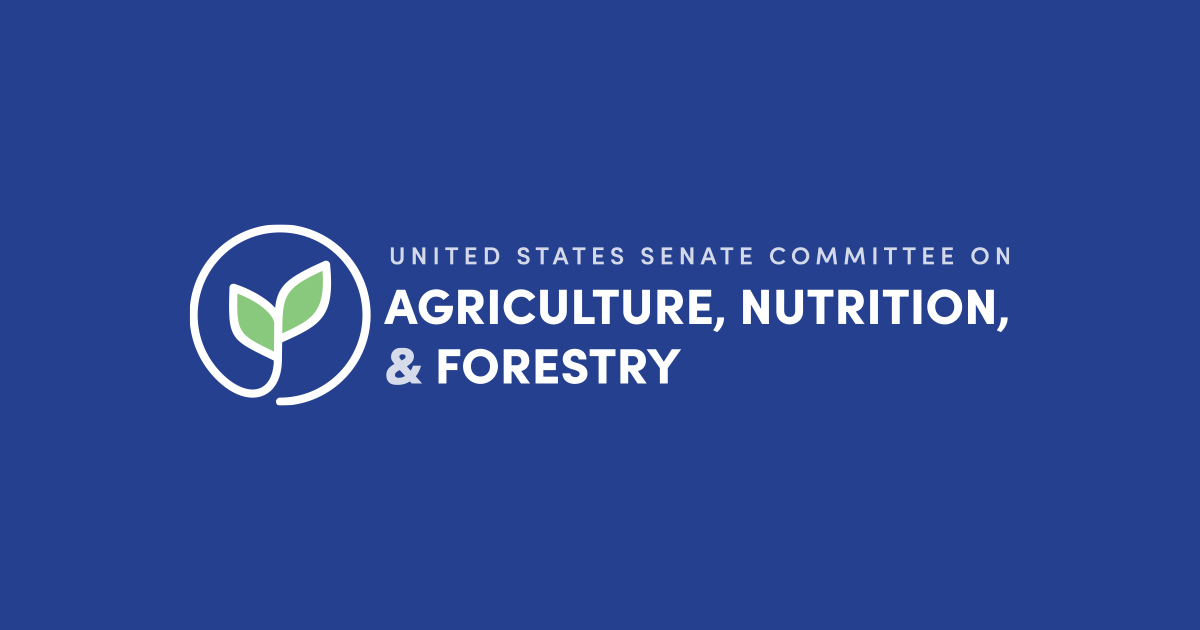
WASHINGTON—U.S. Senator John Boozman (R-AR), ranking member of the U.S. Senate Committee on Agriculture, Nutrition, and Forestry, released the following opening remarks, as prepared, from the “Innovation in American Agriculture: Leveraging Technology and Artificial Intelligence” hearing.
Good morning and welcome to today’s hearing to examine the current and potential uses of artificial intelligence in U.S. agriculture.
We have a panel of experts before us who are able to discuss and educate this committee on the potential of this technology within agricultural industry. Thank you all for being here, I look forward to learning from you all.
While agriculture faces many challenges, there are also tremendous opportunities on the horizon. I am excited to explore some of those opportunities here today.
AI powered technology takes many forms across agriculture – making it difficult to pinpoint just one definition. Diverse uses such as monitoring of livestock for disease detection or climate monitoring to mitigate the chance and impacts of wildfire are just the starting point.
Precision agriculture powered by artificial intelligence holds promise for American agriculture. From targeted fertilizer and pesticide applications guided by dozens of high-resolution cameras to irrigation systems that can sense the source of leaks before crop losses. AI has the potential to dramatically increase efficiency, and minimize waste, resulting in improved yields and profitability.
AI also has a role to play in our food supply chain.
In 2023, researchers at the University of Arkansas were awarded a $5 million U.S. Department of Agriculture-National Institute of Food and Agriculture grant to establish the Center for Scalable and Intelligent Automation in Poultry Processing.
This center will study ways to increase use of AI and robotics in poultry processing to reduce waste and detect pathogens. This technology may be a useful tool for processing plant employees to achieve consistency in the specifications of products while also mitigating the threats posed by pathogens and making our food supply even safer.
However, while AI holds great potential, we should ask tough questions about the potential risks.
New regulations may be needed to ensure that consumers are kept safe, especially when it comes to the use of applications that handle sensitive data.
For decades, the United States has led the world in innovation. One third of the $5 trillion global information technology market in 2022 was located in the U.S. Since the beginning of the technological revolution, America exercised a light-touch approach toward regulating this budding industry while others like Europe took a different approach. We must determine if that approach is appropriate when it comes to regulating AI and it’s uses in agriculture.
Before concluding, I would like to discuss the pending farm bill extension.
Text was unveiled this weekend outlining the agreement among Chairwoman Stabenow, myself, and our colleagues leading the House Agriculture Committee. We have agreed to provide a 1-year extension of the 2018 farm bill and to maintain funding for the orphan programs.
I want to thank Chairwoman Stabenow for her leadership and partnership to provide certainty to our farmers and ranchers, so they can go about running their businesses as we continue our work to reauthorize the farm bill.
It is more important than ever to pass a farm bill that reflects the needs and challenges of today and gives certainty to those responsible for producing the food and fiber that feeds and clothes the world.
We owe it to them to get this farm bill done right.
In closing, I am encouraged by the work of my colleagues on this committee to explore risks and regulatory remedies needed to protect Americans from potential risks posed by AI while also encouraging innovation to thrive.
Before, I end my remarks I wanted to recognize a member of Senator Ernst’s staff. Steph Carlson, who serves as the deputy legislative director and ag advisor to Senator Ernst. Steph is returning to her home state of Iowa to be closer to family and to work for the National Pork Producers Council. I was fortunate to spend some time with Steph this spring during my visit to Iowa. There is no question that Steph is committed to helping Iowa’s farm families. I appreciate her contribution to the work of this committee and wish her the best.
Thank you again, Madam Chair, and I look forward to today’s discussion.
